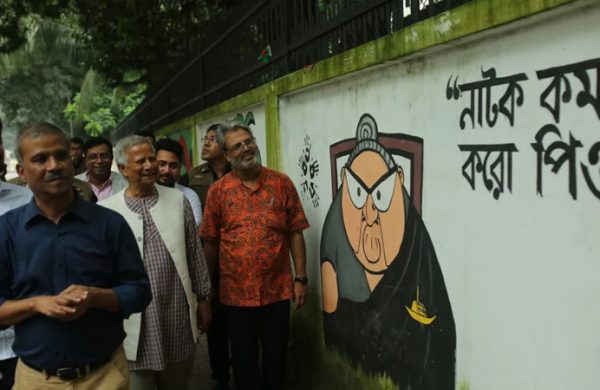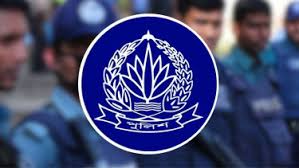3 Months into Hasina’s Fall: Relief from a fascist regime stuck in the mud of greed and hatred
- Update Time : Tuesday, November 5, 2024

TDS Desk
Three months have elapsed since the fall of the fascist Sheikh Hasina regime, yet the cascade of its horrifying acts continues to increase with experts calling for taking a lesson from this to prevent repetition in the future.
Since Awami League’s house of cards collapsed on 5 August in the face of a student-led mass uprising and Hasina fled to India, a series of unbelievable reports on arbitrary murders, enforced disappearances, extrajudicial killings, corruption, money laundering, nepotism, destruction of democratic and electoral system and damage of constitutional institutions have begun to unfold.
The fall of autocracy offered the countrymen new freedom from a government that ruled the country for over 15 years repressing the opposition systematically and holding the nation hostage to its greed and hatred.
It is not that the people had no idea about what happened throughout the past regime, yet the extent of torture and looting of money stunned all.
The United Nations Commission on Human Rights said around 650 people were killed in the student movement from 16 July to 11 August while according to the Human Reports Support Society (HRSS), at least 748 were killed in seven days between 18 and 20 July and 4 and 7 August. Besides, over 30,000 people sustained injuries during the movement with 400 of them losing their eyesight.
Enforced disappearance was another inhumane feature of the Awami League government. According to Ain o Salish Kendra, some 611 people became the victims of enforced disappearances between 2009 and 2023. Of them, the bodies of 78 victims have been recovered, 62 were released and 73 were shown arrested, while 383 people are still missing.
The rights body also observed that at least 1,926 people were killed in “gunfights” or “crossfires” across the country in the 15 years of the Awami League regime.
Ain o Salish Kendra Chairman and senior lawyer of the Supreme Court, ZI Khan Panna, said all these incidents are examples of blatant violation of human rights.
“No government can remain in power violating the human rights of the citizens. The fall of the Awami League regime has proved it. The government now in power and the government to be formed in future must take a lesson from this,” he told the Daily Sun.
Limitless corruption allegedly crippled the country’s progress during the Awami League government. Each and every sector of the country struggled to move forward due to bribery, corruption and irregularities.
Unplanned projects and extension of duration and budget made the government’s development initiatives costlier while a section of people associated with the ruling party made the fortune taking opportunity of the situation. For instance, the Awami League government paid around Tk1.05 lakh crore in 14 years as capacity charge to power plant owners till August 2023, revealed a Centre for Policy Dialogue study.
Bangladesh Bank Governor Ahsan H Mansur alleged that business tycoons, close to the ousted government of Sheikh Hasina, syphoned US$17 billion out of the banking sector during her rule. Transparency International Bangladesh (TIB) Executive Director Iftekharuzzaman came up with more dangerous findings as he said on average $12-15 billion have been laundered from Bangladesh annually.
Economist Dr Mahbub Ullah said the Awami League destroyed the country’s economic sector only to benefit its oligarchs.
“Corruption reached such a level that there was no control. And laundering money by the corrupt was another common phenomenon. Our foreign reserves plummeted and the entire banking system was in a fragile condition. The Awami League leadership allowed this to happen,” he said.
The former professor of Dhaka University also said all perpetrators involved with corruption and irregularities during the Awami League regime must be brought to book.
According to many, the Awami League’s biggest blunder was the disruption to the country’s democratic practice and destruction of the electoral system. Massive irregularities in the last three national elections under Sheikh Hasina’s administration had squeezed the democratic space for political parties in the country.
Many people forgot their habit of voting being deprived of their rights to practise franchise. In 2014, some 153 members of parliament were elected unopposed amid the absence of major political parties, elections were rigged a night before the polls day in 2018 while in 2024, the Awami League fielded dummy candidates as independent ones to show the election as participatory as most political parties showed no confidence in Sheikh Hasina.
Besides, all the constitutional institutions, including Anti-Corruption Commission, Election Commission, Public Service Commission and National Human Rights Commission, were occupied with partisan individuals and they were not allowed to function properly.
Prof Md Ferdous Hossain of the political science department at Dhaka University said weakening the constitutional institutions helps reduce transparency and accountability and gives birth to tyranny.
“This was a process. With the rigged elections, constitutional institutions began losing appeal. The message of hatred was spread, political space was narrowed and simultaneously repressive acts to silence the media were enacted. Now Bangladesh has to come out of this process and start afresh,” he said.















